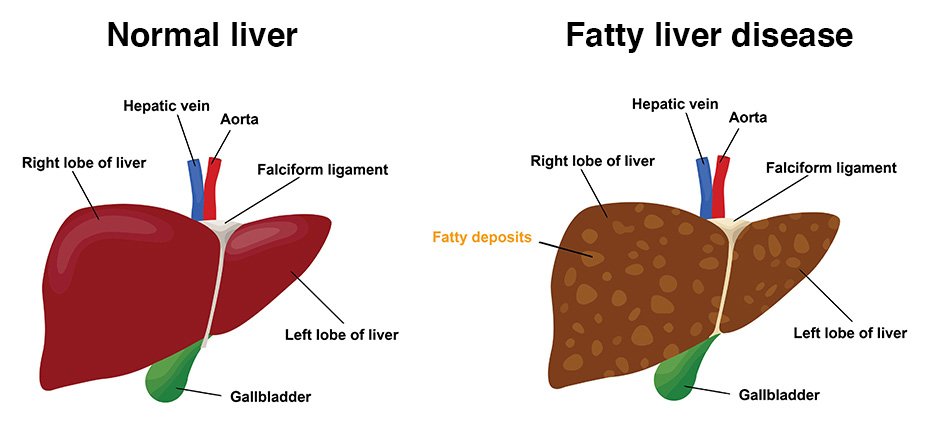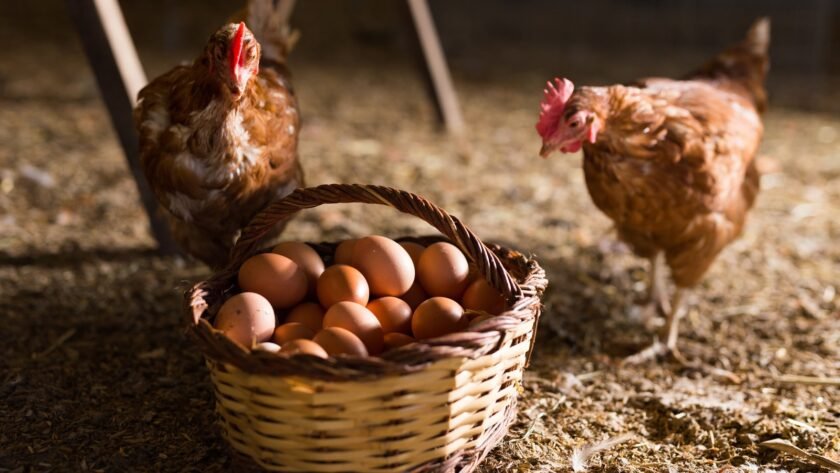Table of Contents
What’s the difference between pasture-raised eggs vs. commercial eggs? While all eggs may seem the same, their nutritional content and potential health impacts vary significantly based on how the chickens are raised.
Pasture-Raised Eggs vs. Commercial Eggs: Which Should You Choose?
The short answer: Go for pasture-raised!
Why? Here’s a breakdown:
Pasture-Raised Eggs:
- Rich in anti-inflammatory omega-3s.
- Excellent source of carotenoids that support heart, eye, prostate, and immune health.
- Packed with choline to protect against liver disease.
- Loaded with vitamins A, E, D, and K2 essential for overall health.
- Aids in muscle recovery after workouts.
- Supports heart health and doesn’t cause health problems.
- An ethical choice that supports animal welfare and local farmers.
Commercial Eggs:
- High in inflammatory omega-6s.
- Contains lots of GMOs and harmful chemicals.
- Lower in nutrients compared to pasture-raised eggs.
In short, pasture-raised eggs are the clear winner for better health and supporting local farmers.
So let’s dive into the details…
Difference Between Pasture-Raised Eggs vs. Commercial Eggs

Hi guys, had another question about eggs: is there a big difference between commercial eggs and pasture-raised eggs?
I’m not talking pasteurized eggs, pasture-raised where they’re out in the pasture and green and they’re eating grass. Yes, there is a big difference.
- Question: Is there a difference between commercial and pasture-raised eggs?
- Answer: Yes, there is a significant difference
- Pasture-raised eggs come from chickens that eat grass in green pastures
Commercial Eggs: Potential Health Concerns

First of all, commercial eggs, factory farm chicken eggs, have high amounts of omega-6 that’s inflammatory. It could be a problem. They’re fed GMO corn and GMO soy.
There’s also formaldehyde in the feed. It’s not good.
- Commercial eggs are high in inflammatory omega-6 fatty acids
- Factory-farmed chickens are fed GMO corn and soy
- Formaldehyde is present in commercial chicken feed
Pasture-Raised Eggs: Nutritional Benefits

Pasture-raised eggs are much better. They’re higher in omega-3 fatty acids, which are anti-inflammatory. They’re fed grass.
If you get organic pasture-raised eggs, which I recommend, it’s about six bucks a dozen. This is three dollars still. It’s worth it for the extra money.
I mean, the amount of work that a farmer has to do to raise these chickens and the eggs, I mean, it’s incredible.
So I’d rather support the farmer than try to support my illness down the road, right, in the hospital when I’m having problems.
- Pasture-raised eggs are higher in anti-inflammatory omega-3 fatty acids
- Chickens are grass-fed
- Organic pasture-raised eggs cost about $6 per dozen
- Supporting farmers is better than supporting illness later in life
Rich in Carotenoids and Choline
High amounts of carotenoids, which is really important in the eye to help with the prostate, help with the heart, help with your immune system. It is one of the richest sources of choline.

Guess what that’s for? To prevent a fatty liver. So here you are, and that’s in the egg yolk. So here you are consuming this fat from the egg yolk that is actually good for a fatty liver, which is interesting.
- High in carotenoids, beneficial for eyes, prostate, heart, and immune system
- Rich source of choline, which helps prevent fatty liver
- Egg yolk fat is beneficial for liver health
Cholesterol and Other Nutrients
It also has lecithin, so it has its own antidote for this cholesterol. And by the way, the cholesterol in eggs is like a precursor to make adrenal hormones for stress, so you need that.
It’s healthy. There are no negative studies on pasture-raised eggs causing any problems with your heart, zero at all.
- Contains lecithin, which acts as an antidote to cholesterol
- Cholesterol in eggs is a precursor to adrenal hormones for stress
- No negative studies linking pasture-raised eggs to heart problems
Additional Nutritional Benefits

Alright, it has all the fat-soluble vitamins: vitamin A, E, D, K2 is in the yolk. High amounts of leucine, which is good for muscle recovery.
So if you’re working out, very good. It has double the amount of vitamin E compared to commercial eggs. By the way, that’s increasing your oxygen-carrying capacity.
It’ll help you exercise longer, helps just increase oxygen, and muscle cramps, not just in the legs but in your heart as well.
- Contains fat-soluble vitamins A, E, D, and K2 in the yolk
- High in leucine, beneficial for muscle recovery
- Double the amount of vitamin E compared to commercial eggs
- Increases oxygen-carrying capacity, beneficial for exercise and heart health
It has 38% more concentrated vitamin A than commercial eggs too. So I highly recommend it. Go for these, avoid these. Very simple.
- 38% more concentrated vitamin A than commercial eggs
- Recommendation: Choose pasture-raised eggs over commercial eggs
Summary
Dr. Berg talks about the difference between commercial eggs and pasture-raised eggs
PASTURE-RAISED EGGS:
- high in omega-3 fatty acids
- high carotenoids
- rich in choline
- contains all the fat-soluble vitamins (A, D, E, K2)
- high amounts of leucine
- double the amount of vitamin E
- 38% more concentrated vitamin A
DATA
https://www.ncbi.nlm.nih.gov/pmc/articles/PMC9658713
FAQ
What are commercial eggs?
Commercial eggs or eggs refer to eggs from domesticated chickens that are sold for human consumption either in shell egg form or for further processing into egg products. These eggs are typically produced in large-scale facilities where specialized breeds of laying hens are bred and raised under controlled conditions to ensure optimal egg production[1].
What is the difference between regular and pasture eggs?
Regular Eggs
Regular eggs, also known as conventional eggs, are produced in large-scale facilities where hens are typically raised in cages or tight living quarters with limited access to sunlight and outdoor space. These eggs are often less nutritious compared to pasture-raised eggs[3][6].
Pasture-Raised Eggs
Pasture-raised eggs come from hens that are allowed to roam freely in open fields and eat a variety of foods, including grass, seeds, bugs, and worms. This diet and outdoor lifestyle result in eggs that are richer in nutrients, such as vitamin E, omega-3 fatty acids, and beta-carotene[2][3][4].
Key Differences
- Nutrition: Pasture-raised eggs contain more vitamins and fatty acids, making them a healthier choice[3][4].
- Yolk Color: Pasture-raised eggs often have darker, richer yolks due to the hens’ diverse diet[2][3].
- Space: Pasture-raised hens have a minimum of 108 square feet of outdoor space, while regular hens have limited or no outdoor access[2][3].
Are commercial eggs healthy?
Commercial eggs, when produced in large-scale facilities, may not be as nutritious as pasture-raised eggs. The hens are often raised in cages with limited access to sunlight and outdoor space, which can affect the nutritional content of the eggs. However, commercial eggs are still a good source of protein and other essential nutrients[6].
What is the difference between fresh eggs and store-bought eggs?
Fresh Eggs
Fresh eggs are typically obtained directly from farms or local markets, ensuring they are less processed and have a shorter shelf life. They are often more nutritious and have a richer flavor compared to store-bought eggs[4].
Store-Bought Eggs
Store-bought eggs are eggs that have been processed and packaged for retail sale. They may have been stored for longer periods and may not have the same nutritional value as fresh eggs. However, they are still a convenient and widely available option[6].
Key Differences
- Nutrition: Fresh eggs are often more nutritious due to their shorter storage time and less processing[4].
- Flavor: Fresh eggs tend to have a richer flavor due to their natural, unprocessed state[4].
Commercial eggs vs pasture raised eggs vs regular eggs
Commercial Eggs
Commercial eggs are produced in large-scale facilities with controlled conditions. They are often less nutritious compared to pasture-raised eggs but are still a good source of protein and other essential nutrients[1][6].
Pasture-Raised Eggs
Pasture-raised eggs come from hens that roam freely in open fields and eat a variety of foods. They are richer in nutrients and have a darker, richer yolk due to their diet and outdoor lifestyle[2][3][4].
Regular Eggs
Regular eggs are produced in facilities with limited outdoor access for the hens. They are often less nutritious compared to pasture-raised eggs but are still a widely available option[3][6].
Comparison Table
| Type | Nutrition | Yolk Color | Space |
|---|---|---|---|
| Commercial | Less nutritious | Varies | Limited |
| Pasture-Raised | Richer in nutrients | Darker, richer | 108 sq ft per hen |
| Regular | Less nutritious | Varies | Limited |
Commercial eggs vs pasture raised eggs nutrition
Commercial Eggs
Commercial eggs are often less nutritious compared to pasture-raised eggs due to the hens’ diet and living conditions. They may contain lower levels of vitamins and fatty acids[3][6].
Pasture-Raised Eggs
Pasture-raised eggs are richer in nutrients such as vitamin E, omega-3 fatty acids, and beta-carotene due to the hens’ diverse diet and outdoor access[3][4].
Comparison Table
| Nutrient | Commercial Eggs | Pasture-Raised Eggs |
|---|---|---|
| Vitamin E | Lower | Higher |
| Omega-3 Fatty Acids | Lower | Higher |
| Beta-Carotene | Lower | Higher |
Pasture-raised eggs vs free range
Pasture-Raised Eggs
Pasture-raised eggs come from hens that have a minimum of 108 square feet of outdoor space per hen. They are allowed to roam freely and eat a variety of foods, resulting in eggs that are richer in nutrients[2][3].
Free-Range Eggs
Free-range eggs come from hens that have access to outdoor space, but the minimum space provided is typically less than that of pasture-raised eggs. They are often marketed as a healthier option compared to conventional eggs but may not have the same nutritional benefits as pasture-raised eggs[2][3].
Key Differences
- Space: Pasture-raised hens have more outdoor space (108 sq ft per hen), while free-range hens have less (typically 2 sq ft per hen)[2][3].
- Nutrition: Pasture-raised eggs are often richer in nutrients due to the hens’ diverse diet and outdoor access[2][3].
Commercial eggs vs pasture raised eggs calories
Commercial Eggs
Commercial eggs are typically high in calories due to the hens’ diet and living conditions. They may contain more calories compared to pasture-raised eggs[3][6].
Pasture-Raised Eggs
Pasture-raised eggs are often lower in calories due to the hens’ diet of natural foods. They may contain fewer calories compared to commercial eggs[3][4].
Comparison Table
| Nutrient | Commercial Eggs | Pasture-Raised Eggs |
|---|---|---|
| Calories | Higher | Lower |
Pasture-raised vs organic eggs
Pasture-Raised Eggs
Pasture-raised eggs are not necessarily organic. Whether an egg is organic depends on whether the hen ate organic feed. Pasture-raised hens are given the most freedom to roam and peck, making them a healthier choice compared to organic eggs[4].
Organic Eggs
Organic eggs are produced from hens that are fed organic feed. They are often marketed as a healthier option but may not have the same nutritional benefits as pasture-raised eggs[4].
Key Differences
- Feed: Pasture-raised hens eat a variety of natural foods, while organic hens are fed organic feed[4].
- Nutrition: Pasture-raised eggs are often richer in nutrients due to the hens’ diverse diet and outdoor access[4].




